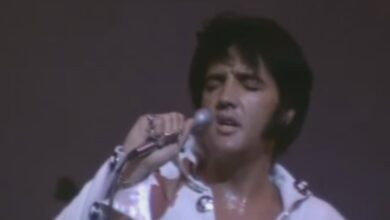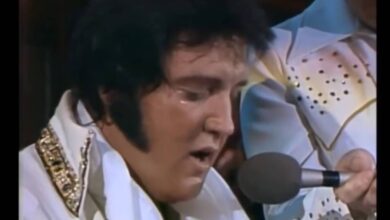Elvis Is The Greatest Gospel Singer Of All Time; His Voice Brings You Closer To God
The song “If That Isn’t Love” embodies a profound expression of faith, reflecting the central ethos of Christian belief which revolves around the concept of divine love and sacrifice. Written by Dottie Rambo, a renowned figure in gospel music, the lyrics capture the essence of Jesus’ sacrifice for humanity, emphasizing the unyielding love that is a cornerstone of Christian teachings. This theme resonates deeply with listeners, drawing them into a meditative experience that provokes reflection on their own faith and the significance of love in their lives.
Dottie Rambo, who penned this moving piece, was a trailblazer in gospel music. Her songwriting career spanned several decades, during which she composed numerous songs that became staples in church services and gospel music performances. Rambo’s ability to convey intricate spiritual truths with simplicity and emotional power set her apart as one of the most influential songwriters in the genre. Her work has touched countless lives, and “If That Isn’t Love” is a prime example of her lyrical genius.
Elvis Presley’s rendition of “If That Isn’t Love” was recorded in 1971 as part of the album “He Touched Me.” This album is significant not only for its musical content but also for its spiritual message. Presley, often lauded as the King of Rock and Roll, was deeply influenced by gospel music throughout his life. His passion for this genre found a prominent place in his discography, reflecting his personal beliefs and the emotional depth he brought to each performance. The powerful vocal delivery in “If That Isn’t Love” underlines his capability to infuse spiritual fervor into his music, resonating with audiences on multiple levels.
The song features a memorable melody that ascends with emotional intensity, allowing Elvis’s voice to soar as he articulates the love encapsulated in the gospel narrative. His performance is marked by sincerity and intensity, showcasing not only his technical vocal abilities but also his genuine connection to the message. This passionate delivery helps bridge the gap between the artist and the listener, creating an intimate and personal worship experience even for those who were not present during the original recording.
Released during a time of personal and cultural upheaval in the early 1970s, the message of unconditional love and sacrifice was particularly poignant. Many listeners found solace in the song’s themes, which evoke a sense of hope and reassurance amid societal changes and challenges. Elvis’s interpretation of this timeless message allowed it to reach a wide array of audiences, further solidifying its place in the canon of gospel music.
“He Touched Me,” the album that includes “If That Isn’t Love,” won a Grammy Award for Best Inspirational Performance in 1972. This recognition not only affirmed Elvis’s contribution to gospel music but also highlighted the importance of the spiritual message he endeavored to convey through his artistry. The Grammy win served to reinforce the crossover potential of gospel music into mainstream culture, attracting listeners who might not typically seek out religious music.
Elvis’s love for gospel music was instilled in him from a young age, as he frequently attended church with his family. This early exposure fostered a lifelong appreciation for the genre, leading him to record numerous gospel songs throughout his career. Many of his fans were drawn to his performances not just for the entertainment but also for the heartfelt messages that often uplifted their spirits. The integration of spiritual themes into his concerts became a hallmark of his legacy, showcasing his belief that music could be a powerful medium for conveying faith.
The enduring popularity of “If That Isn’t Love” can be attributed to its universal message of love and sacrifice, which transcends cultural and generational boundaries. The song continues to be covered by various artists, and its relevance in worship settings remains strong. Each rendition offers a unique interpretation while staying true to the song’s original intent, ensuring that its message continues to inspire new audiences.
In summary, “If That Isn’t Love” is not merely a song but a testament to the unwavering power of love as presented within the Christian faith. Through Elvis Presley’s heartfelt interpretation, Dottie Rambo’s poignant lyrics, and the song’s emotional melody, it becomes a soul-stirring declaration of devotion and sacrifice. The song remains a pivotal piece in the gospel music landscape, cherished by fans and religious communities alike. Elvis’s legacy, intertwined with this timeless piece, serves as a reminder of the impact music can have on individual lives and collective worship experiences.



